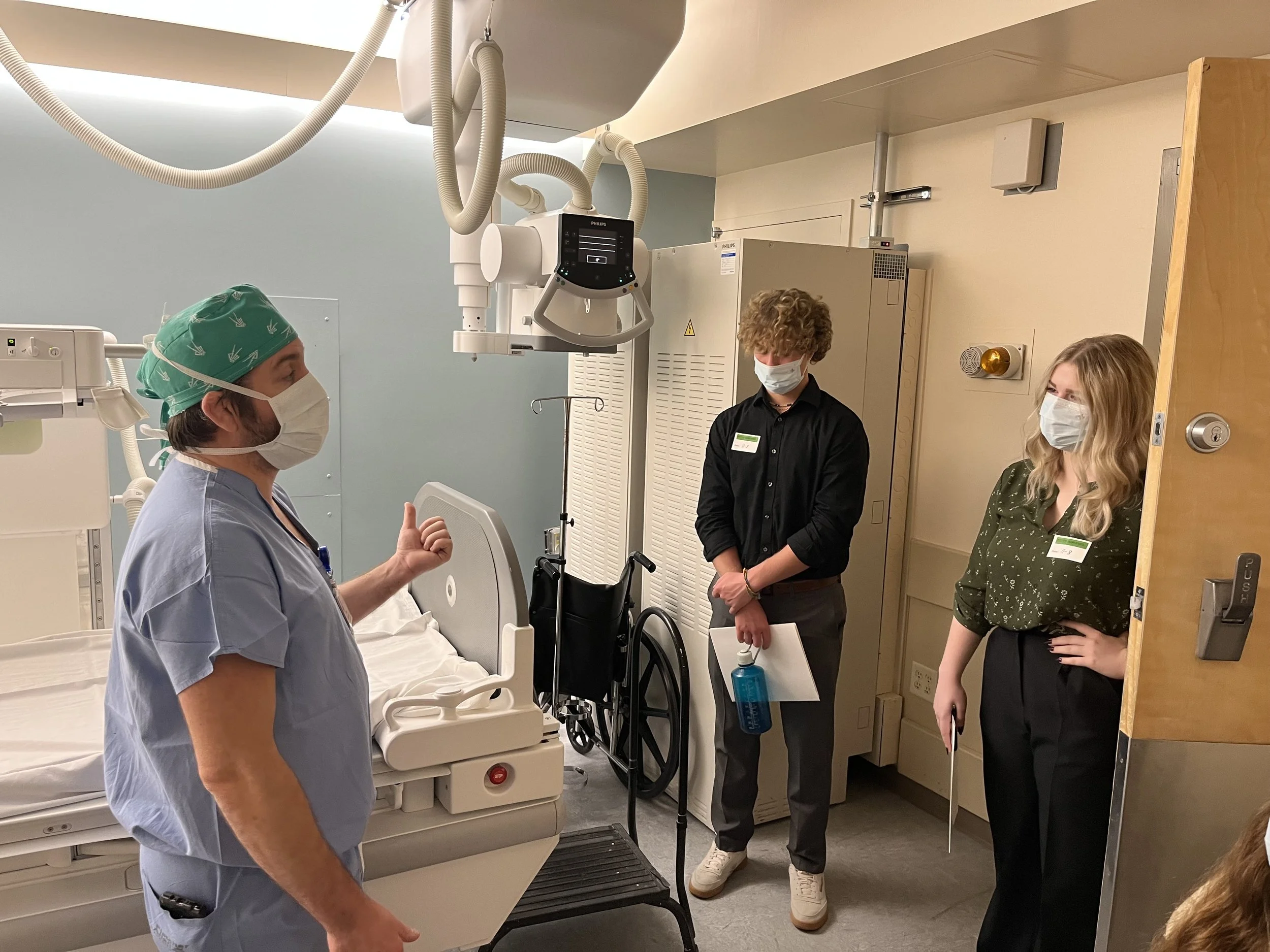Underground Workshop: Burlington technical center is preparing the next generation of nurses
Students shadow in the UVM hospital. Photo courtesy of Tracy Centracchio
Rose Howell is a Burlington High School student working with the Underground Workshop, a network of student journalists across Vermont partnering with Community News Service.
Barsha Khanal, a 2023 high school graduate, lived in Nepal until she was eight. Her family struggled with access to healthcare, which sparked her interest in nursing. Khanal worked towards a career in medicine in high school through the Burlington Technical Center’s Introduction to Healthcare program (IHC) in her 11th grade year.
Interacting with patients and learning nursing first-hand was more engaging than regular school, Khanal said.
Barsha Khanal, former student in IHC. Photo by Rose Howell
The IHC program was a better option for Khanal than an older option at BTC, the Health Sciences Academy, because the structure and methods of the classes better caters to English language learners like herself. She said tech classes better prepared her for life after graduating school.
Khanal now knows what career she wants to pursue.
“I really want to be an RN [registered nurse] and then if my career is better, then a doctor, a Nepali doctor,” Khanal said. “Some Nepali people cannot describe their pain because they don’t understand English.” She wants to break through that language barrier in medicine.
Tracy Centracchio, Khanal’s instructor, teaches the Introduction to Healthcare program. She has been a nurse for 30 years, and has been teaching for six. Starting off in the Health Sciences Academy, she made the switch to the IHC when it was implemented three years ago.
She said the culture shift and improvements in dual enrollment are the biggest changes at the BTC in the past decade or so.
The Intro to Healthcare program was added primarily because of increased interest in health education. Now in its fourth year, it is one of the few single-year programs at BTC, and it offers the opportunity to become a licensed nursing assistant (LNA).
“The nursing world is kind of a disaster in Vermont right now,” Centracchio said. “There is such a gross shortage of LNAs and nurses, and LNA is a great pathway to becoming a nurse.”
Tracy Centracchio, IHC Instructor. Photo by Rose Howell
Students either have classes in the morning and BTC in the afternoon, or vice versa. They meet five days a week. They practice nursing care, learn how to dissect an animal, visit the University of Vermont (UVM) hospital and get a tour.
The first semester is primarily focused on note-taking. Students are able to meet army nurses and get their CPR licenses. Around the middle of the year, students go to UVM and shadow an LNA. At the end of the year, they complete their exam.
The hybrid interactive model allows for more time with students.
“We have a lot of community-building time," Centracchio said. "We get to know each other well and go deeper into the material.”
The community that Centracchio describes, along with the general perception of technical education, is very different from 10 years ago.
“I feel like we have a more variety of students across the board,” Centracchio said. “Tech often [had) more kids who couldn't be successful in regular school, and that was kind of [its] reputation.”
Over the past 10 years, dual enrollment has significantly expanded. Every program at BTC provides some type of dual enrollment, college credit and/or certification. The IHC program offers two dual enrollment classes. Centracchio said 10 years ago, it wasn’t like this.
Demonstration by medical professional. Photo courtesy of Tracy Centracchio
“Act 77 I'm sure is part of what opened that door,” she said.
What will change in tech look like over the next 10 years? According to Centracchio, workforce development initiatives are the main pieces– essentially, building a network of healthcare and pathways for after high school.
Centracchio feels that interest and opportunities in tech will increase particularly in the aftermath of the COVID-19 shutdown.
“As we see kids come out of this COVID online learning that shut down creativity and experiential learning,” Centracchio said, “I think there's a huge opportunity for tech all over the place, and hands-on learning.”
Editors’ Note: The reporting for this story was conducted in spring 2023 as part of an effort to examine the effects of Act 77, a law that was passed in Vermont 10 years ago. Act 77 created and expanded different Flexible Pathways, opportunities for learning that fall outside of the typical high school experience. These pathways include dual enrollment, technical education, early college, and project-based learning. Act 77 also created the proficiency-based learning model, which is being implemented in schools across Vermont.










